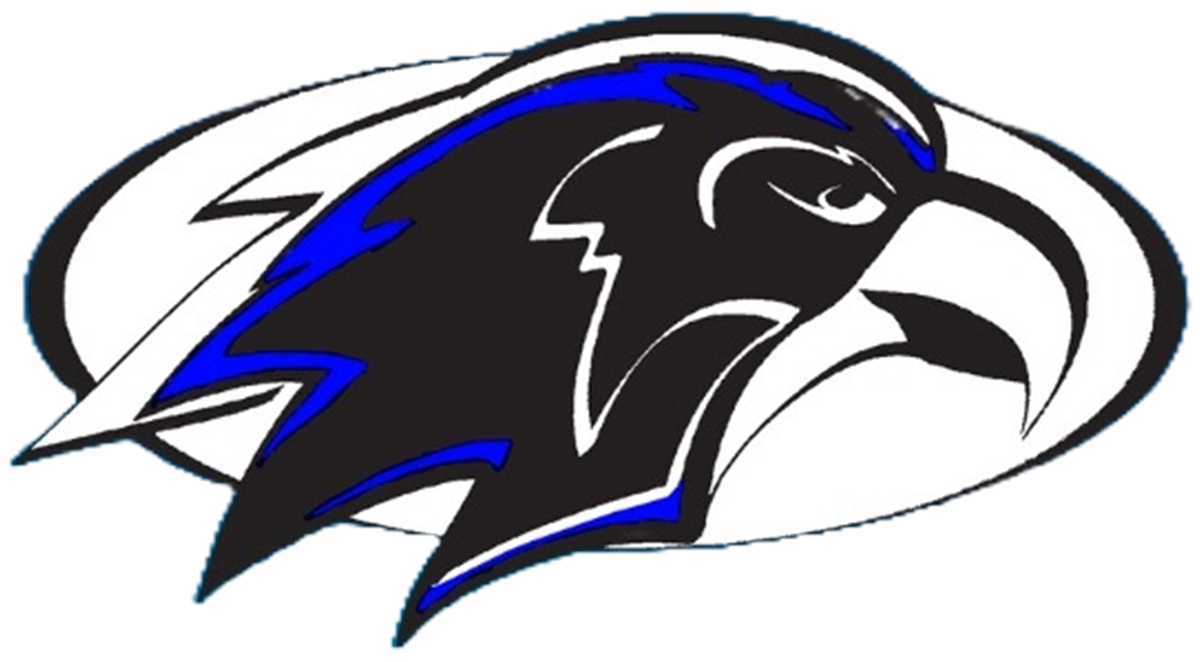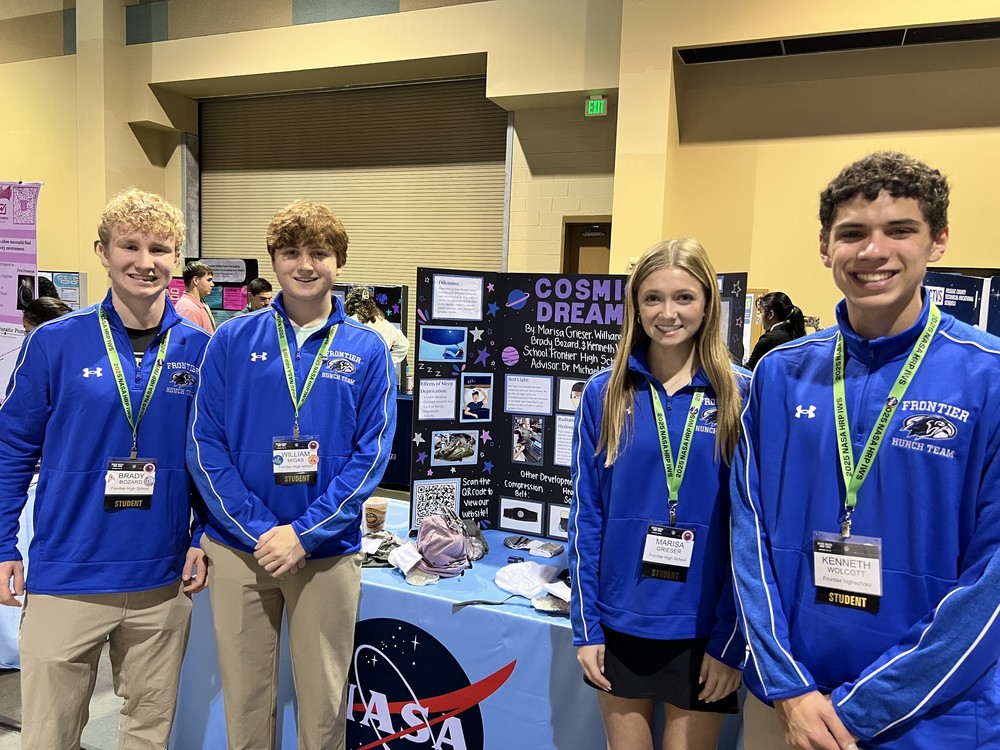A team of Frontier High School seniors had the rare opportunity to present their research to scientists from around the world during the prestigious NASA Human Research Program Investigators’ Workshop in Galveston, Texas, at the end of January.
The Frontier team of Brady Bozard, Marisa Grieser, William Migas and Kenny Wolcott was one of just 25 high school teams from around the country chosen to participate in the event. It was also the first year that high school teams took part.
“They all did an amazing job. It was very impressive,” said Frontier High School Science Teacher Dr. Michael Delmont, who accompanied the students on the trip. “It was an incredible opportunity for all of us. They really showed how amazing Frontier students are.”
The problem the Frontier students focused on was mental health in space, and specifically lack of sleep. They invented a prototype sleeping mask to deal with the problem.
“It was like a science fair. We had people walking up to us asking about our projects. They ranged from flight surgeons to people pursuing a PhD,” Grieser said. “We got a lot of feedback, and a lot of people complimented our work. We had an eye surgeon talk to us about his ideas to expand our mask. That was cool.”
“This project couldn’t have reached the heights that it did without each person’s individual contribution and everybody’s collaborative efforts together,” said Migas, who plans to major in political science in college. “I’m really proud to be a part of this team with such hard-working people.”
Wolcott plans to join the Marine Corps after High School, and then go to college after the Marines, so this experience proved advantageous.
“Seeing a lot of people in the military who have these master’s and PhDs was really inspiring,” Wolcott said.
“The trip was great. Being able to talk to people with degrees in engineering and biomed -- which many of us want to pursue -- was just amazing. It was a really good experience,” Wolcott added.
Bozard hopes to attend the Air Force Academy and study either aerospace or astrological engineering in college and then become either a pilot and eventually an astronaut, or an aerospace engineer.
“It was really great to talk to both astronauts and pilots who flew C-130s and find out about their experiences,” Bozard said.
For Grieser, who wants to pursue a biomedical degree at the University of Buffalo and eventually go to medical school, this experience was invaluable.
“It was exciting to see all the research and testing we’ve done come together into what we had pictured,” Grieser said. “This was a great start to get that hands-on experience that I can hopefully build off of as I pursue my career. It really expanded my horizons.”
“The most important thing I learned was the value of teamwork – working with others and using their strengths and coming together to work as a team,” Bozard said.

